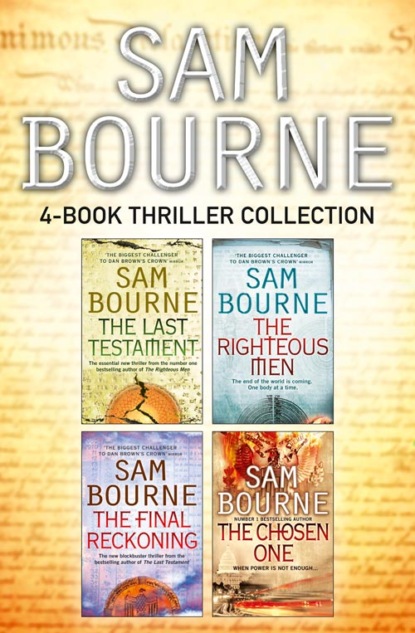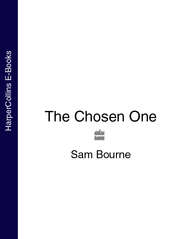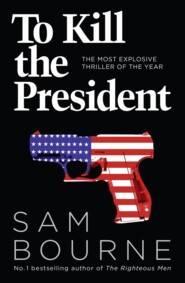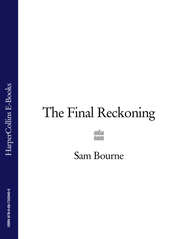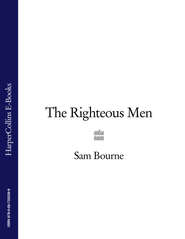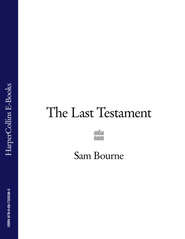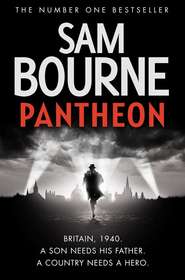По всем вопросам обращайтесь на: info@litportal.ru
(©) 2003-2024.
✖
Sam Bourne 4-Book Thriller Collection
Автор
Год написания книги
2018
Настройки чтения
Размер шрифта
Высота строк
Поля
He knew they could have discussed it for hours, parsing every clause for multiple meanings like a pair of the sharpest Talmudical scholars. But sometimes you just have to go with your first instinct. Journalism was like that. You would be at a press conference, handed some voluminous document, and somehow you would have to whip through it in five minutes, decide what it was all about, ask your question and go. In truth, the document could not be read properly in less than four or five hours, but journalists liked to think such strictures were for lesser mortals.
So Will trusted his judgment. Besides, he was sick of talking, deciphering and interpreting. He wanted to move, to go somewhere. He had been inside for hours, inhaling air made sweet and sickly by fast food.
He had heard what he needed to hear. He knew exactly where he had to go – and he knew he would have to go there alone.
TWENTY-EIGHT (#ulink_d2150f00-4e21-565d-8f65-4584dc7a38d6)
Saturday, 9.50pm, Manhattan
A long line of elevators, maybe ten of them, and barely a soul to elevate. All big offices were probably like this on the weekends: still functioning, still with a guard at the front desk and lights on in the canteen, but skeletal versions of their weekday selves.
The lobby of the New York Times building looked especially bereft. On Monday at 10am, this space would be jammed, as circulation managers jostled with graphic designers to cram into elevators, half of them clutching steaming cups of overpriced coffee. Now the same space was empty and silent, with only the rarest ‘ping’ to announce that an elevator had moved up a few floors and come back home again.
Will nodded a hello to the guard on duty who gave him the merest glance. He was watching a ball game on a TV monitor that Will was sure was supposed to be tuned to closed-circuit pictures of the fire escape or rear entrance or something. Will swiped his card and headed to the newsroom.
He was glad to be here. He had not worked at the Times for long, but this office felt familiar. And he could not face going home. Just the thought of closing the front door and hearing the silence made him shudder. The pictures on the wall; Beth’s clothes in the cupboard; her smell in the bathroom. Even imagining it scared him.
Besides, was this not what Yosef Yitzhok had told him to do in person, before he began communicating by texted riddle? Look to your work. Now, via Proverbs 10, he had been more specific.
Will’s pace quickened as he walked into the newsroom, deliberately avoiding eye contact with anyone who might spot him. At this time of night it was mainly production staff, not friends of his, but still Will kept his peripheral vision switched off, focused only on reaching his desk.
As he got nearer, glimpsing something over the flimsy partition wall, his heart thumped. There was a box, placed on his seat. Could this be what YY had been talking about? Had he been perfectly literal? Go to your office, it’s all there waiting for you. A box containing all the answers?
Will knew it was pure fantasy, but he could not help himself. He sprinted the last yard or two, grabbed the box, feeling its weight and tearing it open all at the same time. It was much lighter than its size had suggested and hard to open too. Finally the two top leaves came apart, Will stuck his arm inside and felt something soft and fleshy, like a fruit. What the hell was this? He dug in deeper; it felt moist. He hooked his fingers through some kind of opening and, using it as a handle, pulled up the entire object.
A Hallowe’en pumpkin. Will had poked his fingers through an eye socket.
Attached was a card.
The Better Relations Company invite you to a special evening . . .
Some bullshit PR freebie. Invitations for promotional events in New York had become increasingly absurd and excessive: FedEx packages arriving at great expense, containing a silver key which turned out to be the ticket for the launch of the new Ericsson cell phone. The English Puritan in Will balked at such conspicuous waste. He picked up the pumpkin and hurled it across the pod towards a dustbin; it landed and split open by Schwarz’s desk. He’ll hardly notice.
He glanced at the rest of the post: circulars and press releases. A few seemed to be new deposits – an invite for a party at the British Consulate in New York; a flyer for a convention hosted by some evangelical outfit, the Church of the Reborn Jesus; a notice about the Times healthcare scheme – otherwise, the pile of paper was just as he had left it on Monday, the last day he had been in the office.
That was nearly a week ago; it felt like a lifetime. It seemed like an earlier, golden era – life before the kidnap. How lucky he had been, flying out of New York, then bombing down the backroads of Montana with nothing more grave on his mind than the fickle tastes of the National desk. Of course he had not appreciated it: he had even been idiotic enough to feel glum about his cock-up on the floods story. As if any of that mattered. One of Beth’s favourite songs floated into his head, or rather just one line of it. You don’t know what you’ve got till it’s gone . . . After a second or two, he was not hearing Joni Mitchell’s voice but Beth’s. She loved singing and he loved to listen to her. Gathering dust in the corner of their living room was an old acoustic guitar, a memento of student days when she would strum old songs of love and loss to herself. She sang only rarely these days; Will would have to bribe her to do it. But when she did, his heart would soar.
Will could feel his eyes stinging. He wanted very badly to cry, to give into this memory of his wife that had caught him unawares. He wanted to fall into a chair, make a pillow of his arms and prolong the memory, to hold on to it the way a child wants to catch a bubble, never letting it burst.
Instead he began searching for the notebook he had left here five days ago, the one he had filled up in Brownsville, writing on both sides of the pages.
It was not under the press release pile, nor in the stack of magazines and papers Will had already begun to accumulate, waiting to be clipped. (A job he liked in theory but never got around to doing.) He checked the drawers, which he had loaded on his first day with Post-its, a handful of contacts’ business cards, batteries and an old cassette machine in case his mini-disc recorder broke down. Not there. He looked back at the desk-chair and on the floor and then rummaged through the papers all over again.
He looked around the pod, his eye stopping on the photo of Amy Woodstein’s toddler son apparently wrestling with his mother, pushing her over from the side. They were both smiling, Amy wearing an expression of relaxed joy that neither she, nor anyone else, ever displayed in this newsroom.
Suddenly he heard Woodstein’s voice in his head. My advice is to lock up your notebooks when Terry’s around. And talk quietly when you’re on the phone.
Will turned himself around slowly. Neat as ever, Walton’s desk seemed to carry no excess paper. Just the single yellow legal pad.
Will inched closer, his eyes instinctively darting left and right to check no one was around. He ran his hands along the desk, as if to confirm through touch that it really was as clear and empty as it looked. Nothing there. He checked below the yellow pad, to see if there was another stashed underneath. No.
Now his hand was moving towards the desk drawer. Still scoping the room, he began to pull. It was locked.
Will sat himself in Terry Walton’s chair, ready to mount the search for the key. He was sure it would be here somewhere: no one kept the key to a desk-drawer on a ring, did they? Will ran his hand underneath the desk, hoping to find it taped in place. Nothing.
He sat back in the chair. Where could it be? The desk held only the yellow pad and a couple of lame mementos of Walton’s glory days as a foreign correspondent: a bust of Lenin and, most bizarre, a snow-dome in which the winter scene was not children sledging or reindeer riding but a fatherly-looking Saddam Hussein, his arms outstretched, reaching out to a young boy and girl running towards him. Ba’athist kitsch, doubtless picked up when Walton covered the first Gulf War. Without thinking, Will picked it up to give it a shake, to watch the blizzard fall on the great Iraqi tyrant. As the first flakes fell, he saw it. Stuck to the underside of this plastic bauble – a thin, silver key.
‘Good evening, William.’
Will could feel his muscles seize up. He had been caught. He swivelled his chair around.
The man was barely visible, standing in the half-light. Still, Will recognized his profile before he could even make out the features. It was Townsend McDougal, Executive Editor of the New York Times.
‘Oh, hello. Good evening.’ Will could hear the nerves, the exhaustion and the panic in his own voice.
‘I’ve heard of eagerness and dedication, William, but this is surely beyond the call of duty: spending Saturday night toiling not only at your own desk, but at that of a colleague. Most industrious.’
‘Ah, yes. Sorry. I was . . . I was looking for something. I think I might have left my notebook here. On Terry’s desk, I mean.’
McDougal made a show of craning his neck and peering at the desk, as if searching it was a difficult task, when in fact it was uncluttered and visibly empty.
‘Doesn’t seem to be here, does it, William?’
‘No, sir. It doesn’t.’ Will was embarrassed by that ‘sir’. He was also aware of sitting so far back in his – Walton’s – chair, he risked falling over. Like a man held at gunpoint.
‘We didn’t see you in the office yesterday, William. Harden wondered if you had been kidnapped.’
Will felt a feverish chill run along his neck, as if he was fighting a severe flu. He was so tired. ‘No, I was . . . I’ve been working on something. On a story.’
‘What kind of story, William? Do you have another unlikely hero for us? Another “diamond in the rough” like your saintly crack dealer? Another organ-giving gun nut?’
Will had a dread thought. The editor was either mocking him or, much worse, voicing scepticism. The paper had been burned before by young men in such a hurry to make their mark that they had written works of short fiction rather than journalism, which the New York Times had swallowed whole and published on page one. People still spoke of the Jayson Blair scandal, which had toppled one of Townsend’s predecessors.
Will realized what he now looked like. Unshaven and twitchy – and, unaccountably, in the newsroom late on a Saturday night at someone else’s desk. ‘It’s not what you think, sir.’ Will could hear his own voice slurring with fatigue. His mouth was dry. ‘I just wanted to check something about the Brownsville story. I was looking for my notebook and I thought maybe Walton—’
‘Why would Walton want your notebook, William? Be careful not to believe everything you hear in the newsroom. Remember, journalists don’t always tell the truth.’
There it was again, another coded dig at Will and his stories. Was he accusing him of faking the Macrae and Baxter tales, albeit in the genteel language of a New England Brahmin? He may have had the accent and erect posture of a Massachusetts aristocrat, but McDougal’s unblinking expression was the poker face of a consummate office politician.
‘No, I was not believing anything. I just want to go through my notes.’
‘Is there something about the story you’re not sure of, William?’
Damn. ‘No, I’ve just been wondering if there’s more there than I first realized.’
‘Oh, I would certainly assume that.’
Another dig.





